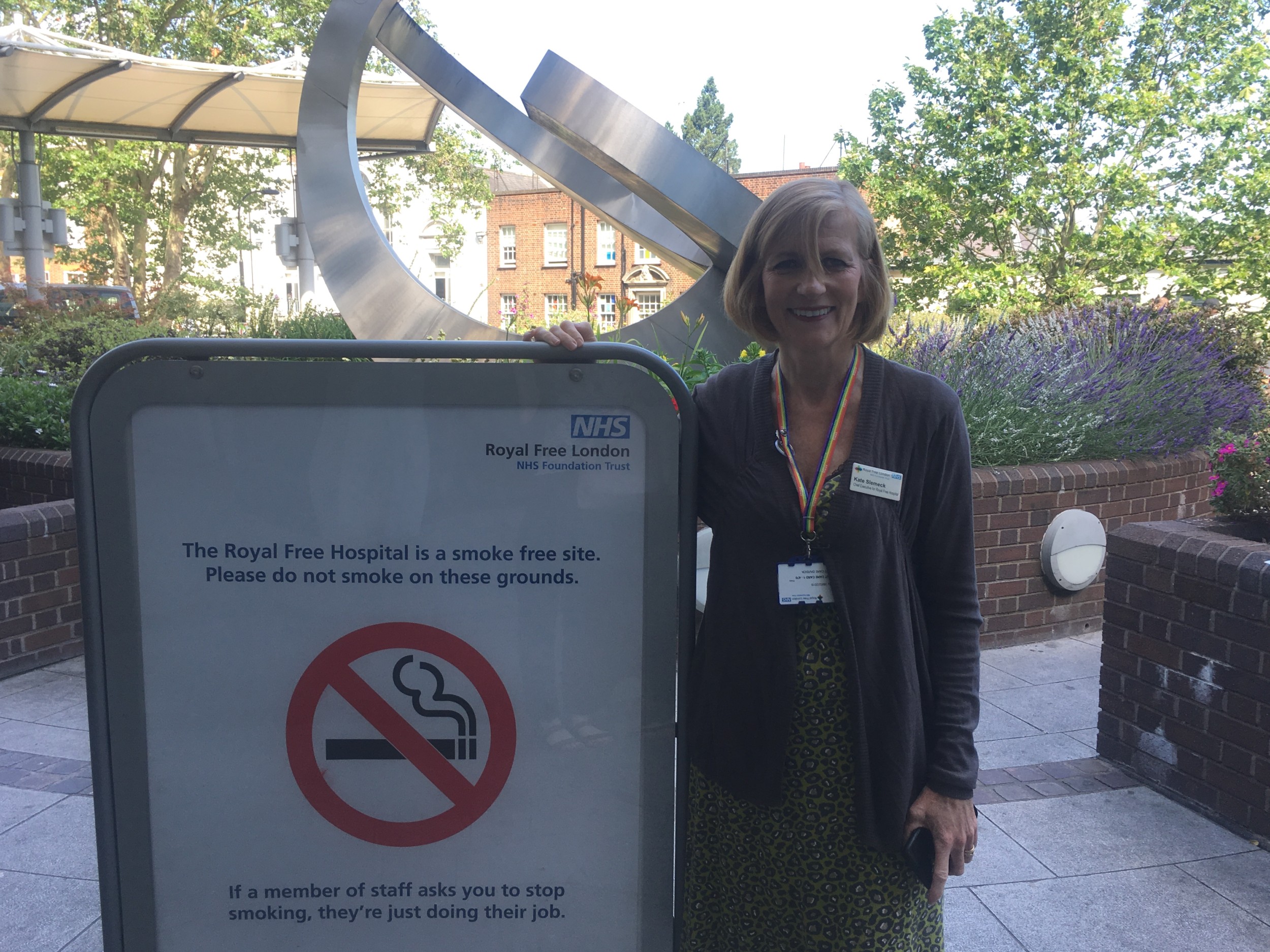
An army of stop-smoking specialists are helping patients at the Royal Free Hospital (RFH) quit the habit – part of a new drive to ensure the site remains smoke-free.
Smoking, including smoking e-cigarettes, is banned throughout the hospital grounds, including in all the outdoor areas such as the car parks.
In the past year 377 members of staff at the RFH have been trained in how to support patients to give up smoking.
RFH chief executive Kate Slemeck has led the drive to ensure patients are given the best chance of quitting – and can often be found outside the hospital asking smokers to put their cigarettes out.
In addition to trained staff, a number of other anti-smoking measures are now in place to ensure patients can walk around the hospital grounds without inhaling secondary smoke.
These include removing cigarette butt bins (as this encourages people to smoke) and increasing the signage around the boundary of the hospital. There has also been a renewed focus on cleaning the areas at the front of the hospital with regular patrols monitoring and cleaning up cigarette butts and other litter.
Kate Slemeck, said: “We want the hospital to be a pleasant environment for our patients, visitors and staff to enjoy, and to have areas that they can sit out and enjoy the air without the risk they will inhale secondary smoke.
“We understand that it can be difficult to give up, so that is why we direct patients, visitors and our own staff to expert services to help them stop smoking and we also offer nicotine replacement therapy on the wards. We also want patients and visitors to know that if they smoke on hospital grounds they will be politely asked to stop.”
To give patients the best chance of giving up, Naseem Mushtaq, smoking cessation programme manager, visits wards across the trust to train staff in how to support patients who want to quit.
Naseem advises staff how to approach smokers, that nicotine replacement therapy that is available to all in-patients, and that there are stop-smoking services they can access to help them give up.
She said: “I’m here to help staff support patients who wish to give up. By stopping smoking, patients are protecting their friends and family, and not just themselves.
“Breathing in second-hand smoke increases the risk of developing many different cancers and other conditions and we know that the health of people who give up can improve immediately so it’s really important to give patients the best chance of kicking the habit. There are lots of support services that can offer help and we can point them in the right direction.”
All patients admitted to the hospital are asked if they smoke and whether they would like help to give up. Nicotine replacement products such as patches, gum and inhalators are available to all patients on the ward and when they discharged, patients can take two weeks’ supply with them.
Out-patients can be referred to local stop-smoking service, while visitors can be given advice about where to access stop-smoking support.
Picture caption: Royal Free Hospital chief executive Kate Slemeck
 Translate
Translate